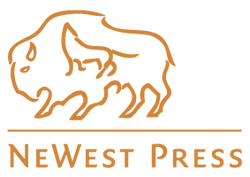All That's Left
Find at your local bookstore
978-1-77439-096-2 | 2024 May | 344 Pages
ABOUT THIS BOOK
Finalist for the 2025 High Plains International Book Award for Woman Writer!
Darby Swank’s entire life changed when her Aunt Bea was brutally murdered one summer in their rural Saskatchewan community.
Following her gripping debut Friendly Fire, Lisa Guenther skillfully picks up Darby’s story a few weeks after the dramatic finale. Building her life anew, Darby makes new and lasting friendships and connections with recently found family members, including her charismatic cousin Brynny, a young woman leading an exciting and inclusive church in rural Alberta. Darby begins to make a name for herself on the Canadian music scene. Landing a sought after gig with an established Toronto band, Darby is thrust into the life of a working musician on the road. Still haunted by the violence hidden in her past, Darby must find a way to live at least partially in the public eye, as her music career takes off, and her Aunt Bea’s art and story become more and more well known.
Guenther’s second novel is a pressing account of a life wrecked by trauma, and rebuilt brick by brick with joy, love, and friendship. Guenther asks important questions of privacy, safety, and the vulnerability of artists in the public eye, while meditating on the importance of art and community.
- Featured in 49th Shelf's Most Anticipated 2024 Spring Fiction
- Featured in 49th Shelf's New Fiction to Put on Your List
“This wrenching novel grips you from page one. All That’s Left takes a deep dive into what happens — sometimes supportive, sometimes terrifying— in the spaces between people. This is a story filled with tension and tempered with tenderness. Lisa Guenther understands relationships at their best, and at their worst. And she understands the ways that community and connection, music and art help us to pick each other up and carry on, as we must, when the unimaginable happens.”
— Leona Theis, award winning author of If Sylvie Had Nine Lives and Sightlines
“All That’s Left is a sprawling and fascinating story spanning generations, locations, and human experiences. It seamlessly blends the worlds of music touring, Canada’s vast prairies, processing family trauma, and the healing power of our connection to animals. It’s a captivating journey whose directions kept me guessing, and I loved being along for the ride. A highly recommended read by one of Canada’s emerging literary talents.” — Eliza Reid, bestselling author of Secrets of the Sprakkar
“Passionate, sometimes reckless, and always honest, Darby Swank is an enigma, even to herself. A talented musician, a horsewoman, and a survivor, she takes us on a ride from Edmonton’s Whyte Avenue to the bar stages of Toronto and back to the family ranch in Saskatchewan. With a ‘Jesus Horse Cult’, a ruthless stalker, a lesbian preacher, and a family torn apart by silence, All That’s Left explores obsession in its many forms, the sometimes-lethal results of the secrets we keep and the lies we tell ourselves, and the explosive legacy of domestic violence. A renaissance-like fusion of music, horses, sex and love, this page-turning story keeps us in the saddle and hanging on as we thunder toward Darby’s full reckoning with both past and future.”
— Anne Lazurko, award winning author of What is Written on the Tongue and Dollybird
- What do you think the author is trying to say with this book?
- What role does art play in the life of the characters? How does it contrast the darker elements of the story?
- What were your thoughts the various relationships in this book — particularly within Darby's friend-groups, and between Darby and Trevor, and Brynny and Ruby?
- How do those various relationships contrast the relationship Rex believes he's entitled to with Brynny?
- Both All That's Left and Friendly Fire include references to Alex Colville's painting "Horse and Train." Is it a painting you're familiar with, and if so, how do you think it influences the themes of these books?
- Many of the characters are faced with hard choices, especially when it comes to dealing with Rex, and there are costs to all those choices (doing nothing, taking a stand, trying to appease people, etc). What do you think of the choices they make?
- While most of this story takes place in urban settings, Darby is able to reconnect to animals, and the land, at different points, and finds some comfort in the idea that the land will remain constant as the novel concludes. Did those moments resonate with you as a reader?
- Did the ending make you want to break something, crawl into a cave and hide from the world, write a nasty review, or something else?
- Choosing a selection results in a full page refresh.
- Press the space key then arrow keys to make a selection.

